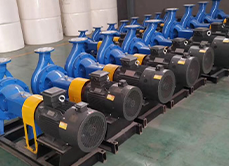Sesotho
- Afrikaans
- Albanian
- Amharic
- Arabic
- Armenian
- Azerbaijani
- Basque
- Belarusian
- Bengali
- Bosnian
- Bulgarian
- Catalan
- Cebuano
- Corsican
- Croatian
- Czech
- Danish
- Dutch
- English
- Esperanto
- Estonian
- Finnish
- French
- Frisian
- Galician
- Georgian
- German
- Greek
- Gujarati
- Haitian Creole
- hausa
- hawaiian
- Hebrew
- Hindi
- Miao
- Hungarian
- Icelandic
- igbo
- Indonesian
- irish
- Italian
- Japanese
- Javanese
- Kannada
- kazakh
- Khmer
- Rwandese
- Korean
- Kurdish
- Kyrgyz
- Lao
- Latin
- Latvian
- Lithuanian
- Luxembourgish
- Macedonian
- Malgashi
- Malay
- Malayalam
- Maltese
- Maori
- Marathi
- Mongolian
- Myanmar
- Nepali
- Norwegian
- Norwegian
- Occitan
- Pashto
- Persian
- Polish
- Portuguese
- Punjabi
- Romanian
- Russian
- Samoan
- Scottish Gaelic
- Serbian
- Sesotho
- Shona
- Sindhi
- Sinhala
- Slovak
- Slovenian
- Somali
- Spanish
- Sundanese
- Swahili
- Swedish
- Tagalog
- Tajik
- Tamil
- Tatar
- Telugu
- Thai
- Turkish
- Turkmen
- Ukrainian
- Urdu
- Uighur
- Uzbek
- Vietnamese
- Welsh
- Bantu
- Yiddish
- Yoruba
- Zulu
Telephone: +86 13120555503
Email: frank@cypump.com
Aug . 11, 2024 02:40 Back to list
Guidelines for Selecting the Right Pump for Your Septic System Needs and Maintenance
Understanding Pumps for Septic Systems
Septic systems are crucial for managing wastewater in areas lacking centralized sewer systems. They treat and disperse sewage and other organic waste, making it essential for homeowners to maintain them properly to prevent system failures and environmental contamination. One of the critical components of a septic system is the pump, which plays a vital role in ensuring the efficient operation of the entire system.
Understanding Pumps for Septic Systems
Selecting the right pump for a septic system is crucial for its proper functioning. Key factors to consider include the pump’s horsepower, warranty, and compatibility with the existing system. The horsepower determines the pump's ability to handle the volume and characteristics of waste, while warranties can provide peace of mind regarding the product's reliability and longevity. Additionally, compatibility is critical; homeowners must ensure that the new pump fits their existing system’s specifications.
pump for septic

Installation of a septic pump is a task best left to professionals. Incorrect installation can lead to malfunctioning pumps, causing backflow and potential contamination. Hiring a licensed septic contractor ensures that the pump is correctly installed, adheres to local regulations, and meets the specific needs of the household. Regular maintenance is also paramount. Homeowners should schedule periodic inspections to check for clogs, wear and tear, and overall functionality. Most pumps can last for several years with proper care; however, neglecting maintenance can lead to premature failure.
Another essential consideration is the environmental impact of septic systems. When pumps fail or when systems are not adequately maintained, wastewater can leak into the surrounding soil and eventually contaminate groundwater. This scenario poses a risk not only to human health but also to local ecosystems. Therefore, it is crucial to be proactive in monitoring the system's health and functionality.
In summary, septic pumps are an integral part of wastewater management in homes that utilize septic systems. Their proper selection, installation, and maintenance are vital for the system's longevity and efficiency. Homeowners must remain vigilant and proactive regarding the health of their septic systems to ensure they function optimally and protect the environment. By doing so, they contribute to a healthier community and preserve natural resources for future generations. Whether considering a new installation or maintaining an existing system, understanding the role of septic pumps is essential for effective wastewater management.
-
Heavy-Duty Mining Sludge Pumps - Wear-Resistant Slurry Handling
NewsAug.02,2025
-
Horizontal Split Case Pump with GPT-4 Turbo | High Efficiency
NewsAug.01,2025
-
ISG Series Pipeline Pump - Chi Yuan Pumps | High Efficiency, Durable Design
NewsAug.01,2025
-
Advanced Flue Gas Desulfurization Pump with GPT-4 Turbo | Durable & Efficient
NewsJul.31,2025
-
ISG Series Vertical Pipeline Pump - Chi Yuan Pumps | Advanced Hydraulic Design&Durable Construction
NewsJul.31,2025
-
ISG Series Vertical Pipeline Pump - Chi Yuan Pumps | Energy Efficient & Low Noise
NewsJul.31,2025










